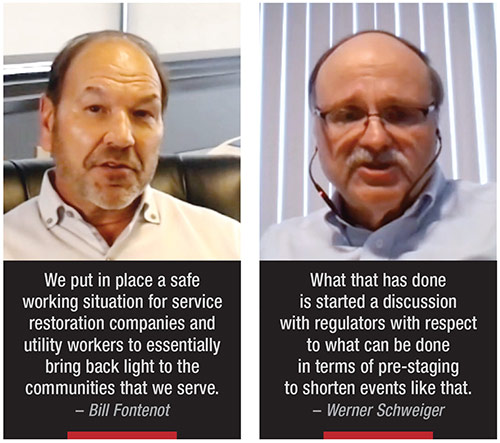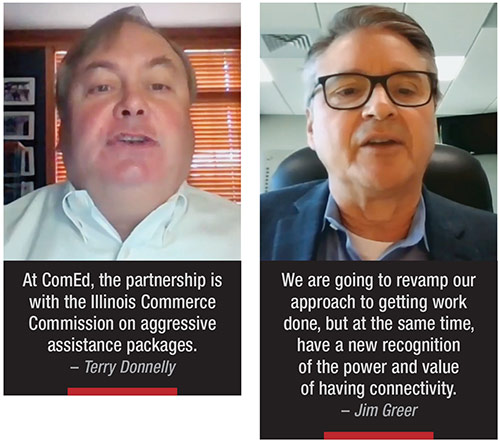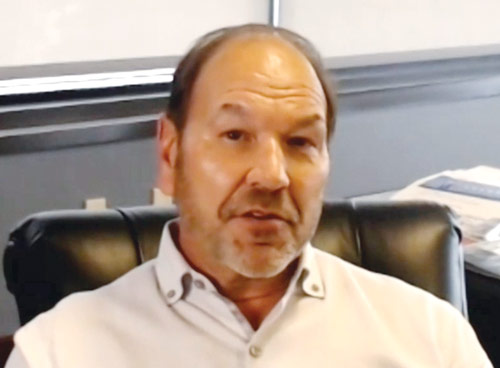Memorable Moments
Bill Fontenot is the CEO of Cleco.


The year was 1885. Thomas Edison was just thirty-eight years old but he was already one of the most famous persons on the planet. He had invented the phonograph eight years earlier. He had invented the electric light bulb six years earlier. He had completed the first central power station three years earlier. By 1885, the electric utility industry was skyrocketing, and it occurred to its first leaders that the exchange of ideas and the learning of best practices would benefit all. Hence, they formed the Association of Edison Illuminating Companies, or AEIC for short.
One hundred and thirty five years later, AEIC is still doing — quite vigorously — what it set out to do so long ago. Perhaps you didn't have the chance to attend its 2020 annual meeting, but don't despair, for PUF did. True, we did not spot Tom Edison at the proceedings, though we and many of the attendees did feel his inspiring presence.
Utility executives of course had a pandemic on their hands in 2020. But that wasn't all. It was a tough year for dealing with storms too, which tested grid resiliency and effective response. This panel discussed those issues quite frankly. The PUF team listened in and illuminates a few of those moments here.
Cleco CEO Bill Fontenot: At the onset of this pandemic, if someone would have asked me, what would I do to prepare myself for a Category 3 storm, which had remained at a Category 2 level for some hundred miles, and two other Category 2 storms that would have shredded your electric system all in a six week period, then we would have to accommodate thousands of line workers in a state with almost no access to hotel rooms?
As an industry, we came up with the ideas. We risk managed trailers at certain occupancy levels, brought in proper safety training, and bussed crews from jobs to hotels. We put in place a safe working situation for service restoration companies and utility workers to essentially bring back light to the communities that we serve. We were able to do so with little or no infections through three major storms.
Eversource Energy EVP and COO Werner Schweiger: We were impacted several months ago by the tropical storm, Isaias, and it was an unprecedented mobilization for us. It was the largest workforce we had ever assembled for a storm in New England.
COVID posed its challenges in terms of logistics and bedding down crews. One of the learnings, that maybe falls into the category of a little bit of a surprise with respect to the storm in the northeast corridor, was our customers and our regulators.
It was also a combination of the COVID experience, as for a number of our customers, particularly in Connecticut, the economy had already been softer than other areas we serve. The overall tolerance for outages was extremely low.
What that has done going forward is started a discussion with regulators with respect to what can be done in terms of pre-staging to shorten events like that. A big part of that is education. One of the big things on our to-do list is to engage the regulators with respect to educating as to what is behind the restoration effort.
What is behind mutual assistance? How easy or how difficult is it to get crews? Some of our neighboring utilities are in the same situation with respect to regulators' scrutiny, but COVID and the economic hardship that some of our customers have been under was a kind of pre-staged event to how they would react to the storm.
ComEd President and CEO Terry Donnelly: That's been a strong story of collaboration. At ComEd, the partnership is with the Illinois Commerce Commission on aggressive assistance packages, because everybody is hurting out there.
A lot of our companies have stepped up to show more support for our employees, whether it's helping them with childcare or elder care, quarantine pay, or safe time relief if someone has COVID.
Our companies, including ComEd, have stepped up to keep things rolling. We had about forty-three percent, or sixty-five hundred employees, not counting contractors, working remotely, and about fifty-seven percent of those reporting in the majority of those field forces.
Since that time, we've increased the percentages of the folks coming into work, but we're still roughly forty-five percent or less than fifty percent remote enabled. We're carefully planning a re-entry, which keeps moving with the criteria with increasing case counts.
Oncor COO Jim Greer: We look at 2020 as a great learning opportunity and see what sticks. We are going to revamp our approach to getting work done, but at the same time, have a new recognition of the power and the value of having that connectivity both in the office, but also in the field.
We're going to look forward to looking hard at the things that worked well, and didn't work well, and how do we implement those on a going-forward basis? It's a great example of continuous improvement. Frankly, AEIC is going to be a great forum to have those discussions and share more detail about what has worked and not worked. I'm excited about 2021.
Category (Actual):
Department:
